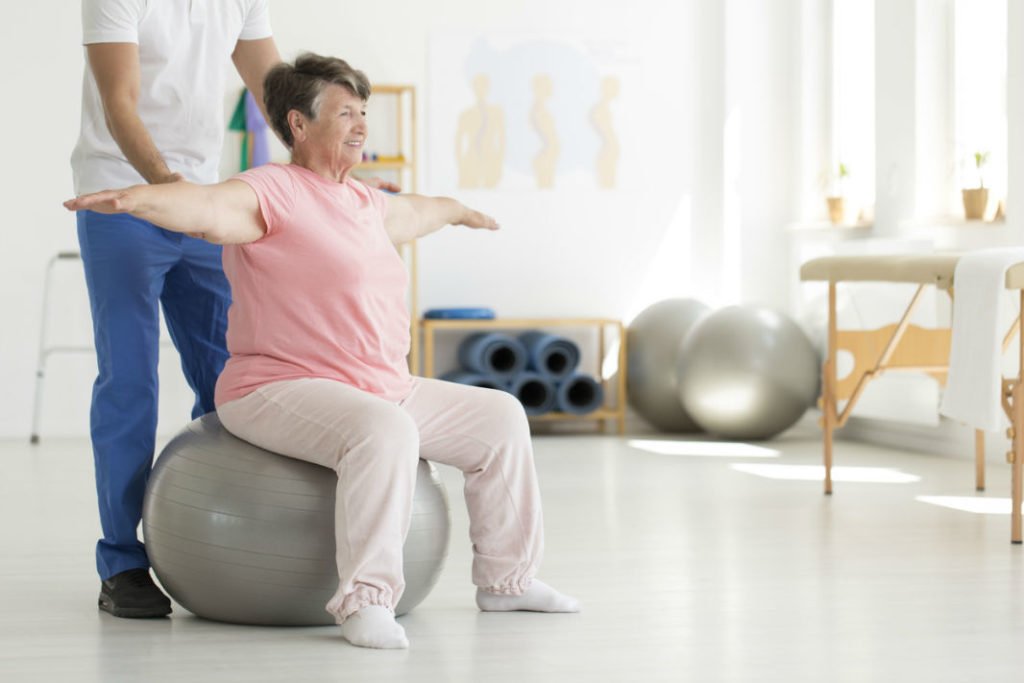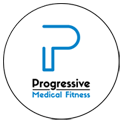
Physical Therapy Addresses Balance and Gait Disorders
Balance and Gait disorders can occur for many reasons and can limit your physical and mental health. At Progressive Medical Fitness we can reduce or even alleviate the symptoms of your condition altogether.
Do you find that you are imbalanced while walking? Are you reaching out for walls, railings, or other objects to stabilize yourself? Do you feel like your balance is not as good as it used to be? Does pain in your hips, knees, or other joints make it difficult for you to walk?
These are symptoms of a balance or gait disorder. Underlying musculoskeletal and neurological conditions can cause or aggravate a balance or gait problem. Fortunately, our physical therapy team at Progressive Medical Fitness in Northport can help.
Physical therapy can address your balance or gait disorder
Physical therapy is the optimal treatment for balance and gait disorders. Our certified physical therapy team at Progressive Medical Fitness can provide you with personalized techniques for improving your balance and ability to walk.
Our Northport physical therapy team will conduct a thorough review of all aspects of your locomotion (balance, gait, posture, etc) as well as conduct a comprehensive physical exam to develop a targeted treatment plan for your specific condition. This treatment plan may include:
Vestibular rehabilitation
Our physical therapy team works to improve your vision, nerves, and muscles in order to achieve a steady balance. Benign Paroxysmal Positional Vertigo (BPPV) is the most common cause of vertigo and our physical therapists will provide you with targeted exercises that will correct the displacement of calcium debris to the appropriate parts of your ear.
Gait retraining exercises
You are taught the proper techniques to achieve a gait that is appropriate for your body.
Strengthening exercises
The results of your physical evaluation will allow us to design a regime of targeted exercises to build strength in your muscles, improving your mobility and reducing your risk of future injury.
Stretches
We will also use the results of your physical evaluation to target muscle groups that would benefit from greater flexibility, thereby increasing your range of motion. This also has the benefit of reducing muscle tightness and stiffness. Increased flexibility gives you more control and faster reaction time, also reducing your risk of injury.
Balance and Gait Disorders: Related but different
Balance disorders
A balance disorder is a condition that makes you feel unsteady or dizzy. Balance disorders can be physical – such as decreasing joint strength and mobility leading to a lack of good balance and increasing the risk of falls. But balance disorders can also be related to sensing where you are in space such, as vertigo, which can make a person feel as if things are spinning.
Gait disorders
Gait disorders can cause abnormal movements in the way you walk and run, due to a malfunction in the nervous system.
Balance and gait disorders are common in older adults and are a major cause of falls. To find out more about how our balance and gait disorders therapy services can benefit you, contact Progressive Medical Fitness in Northport today.
Causes of balance or gait disorders
Many balance disorders, are related to issues in the vestibular system – a delicate collection of fluid-filled chambers and nerves, known as the balance organs of the inner ear, and thousands of nerve receptors in the joints throughout your body.
The vestibular system is responsible for providing our brain with information about motion, head position and spatial orientation. It also helps us keep our balance, stabilize our head during movement and maintain good posture.
Many different underlying conditions can cause balance and gait disorders. Vestibular conditions resulting in balance disorders include, but are not limited to:
Benign paroxysmal positional vertigo (BPPV)
BPPV occurs when calcium is displaced from the inner ear into the fluid-filled canals, causing issues with balance.
Injury or ailment
Concussion or other head injury can lead to issues with balance. Many ailments, such as migraines or low blood pressure, cause muscle weakness or interfere with your balance and make it difficult to keep yourself upright.
Neurological issues
This may include Parkinson’s disease or a stroke. If your neurological system is affected, your balance may also be impacted.
Good balance may just be a step away
Are you looking to improve your balance? Contact Progressive Medical Fitness. Our team of certified physical therapists will help you regain your balance.
